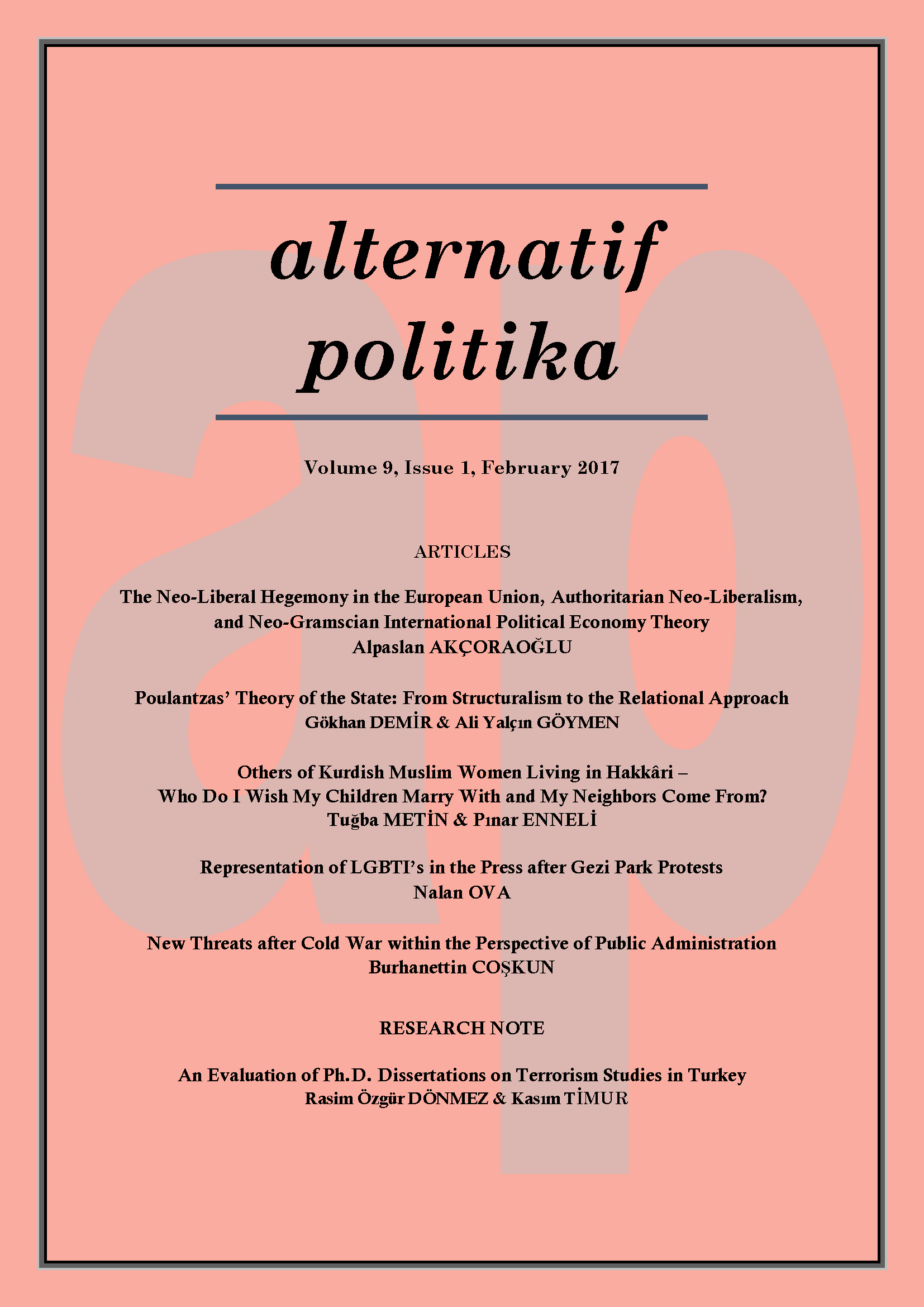Avrupa Birliği’nde Neo-Liberal Hegemonya, Otoriter Neo-Liberalizm ve Neo-Gramsciyen Uluslararası Politik İktisat Teorisi
THE NEO-LIBERAL HEGEMONY IN THE EUROPEAN UNION, AUTHORITARIAN NEO-LIBERALISM, AND NEO-GRAMSCIAN INTERNATIONAL POLITICAL ECONOMY THEORY
Author(s): Alpaslan AkçoraoğluSubject(s): Politics / Political Sciences, Marxist economics, Political Philosophy, Marxism, Political economy, History and theory of political science, EU-Approach / EU-Accession / EU-Development, Socio-Economic Research
Published by: Rasim Özgür DÖNMEZ
Keywords: Neo-liberalism; Neo-Gramscian Transnationalism Theory; European Union; Organic crisis; Bureaucratic Authoritarianism
Summary/Abstract: Although neo-liberalism has not been able to offer any lasting solution to the profound economic crisis and long-run stagnation of the European Union (EU), its ideological supremacy (non-hegemonic in Gramscian terms) has still proceeded in the EU. This article reviews the historical evolution of neo-liberal restructuring in the European integration from the perspective of neo-Gramscian International Political Economy (IPE) literature. The majority of the recent critical IPE studies in the political economy of European integration is based on Robert Cox’s “World Order” theory with neo-Gramscian foundations. Neo-Gramscian IPE emphasizes the significance of transnational relations from a historical materialist perspective and perceives that European integration process is the outcome of a struggle between transnational social forces. In addition, this article analyzes the crisis of neo-liberal hegemony in the EU, the changes in the political economy of the EU after the euro crisis, and the model of authoritarian neo-liberalism from a neo-Gramscian perspective.
Journal: Alternatif Politika
- Issue Year: 9/2017
- Issue No: 1
- Page Range: 1-34
- Page Count: 34
- Language: Turkish

